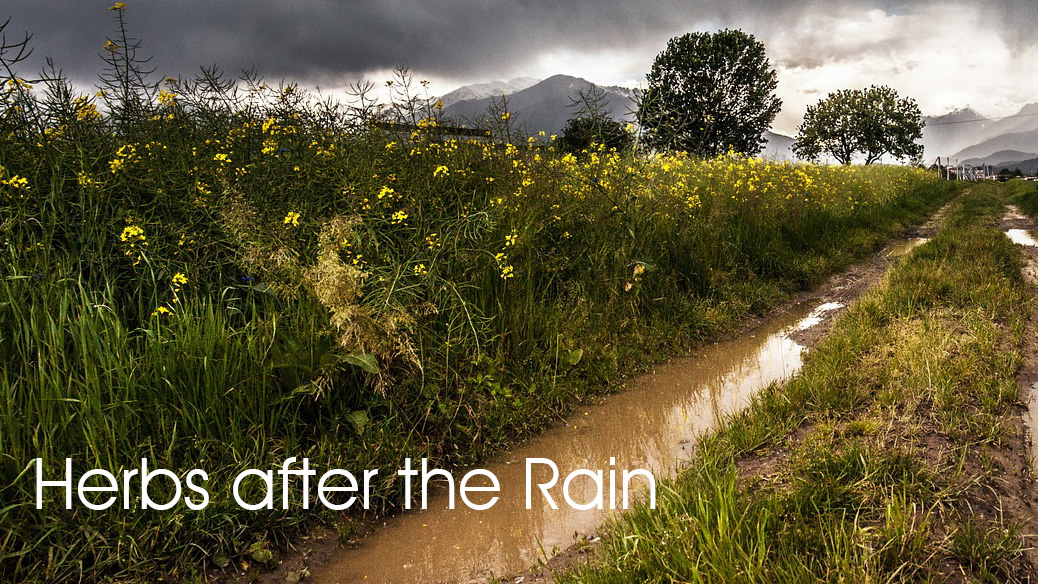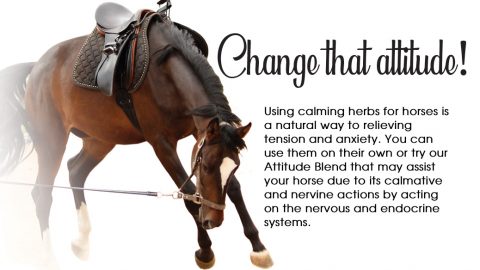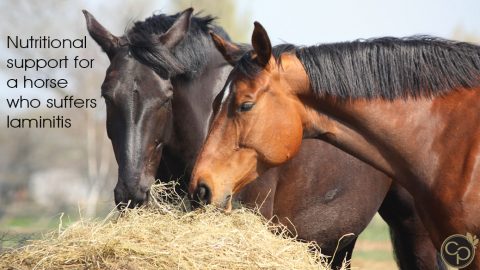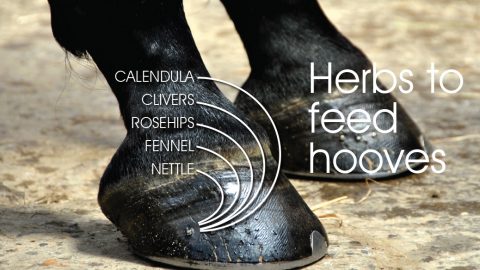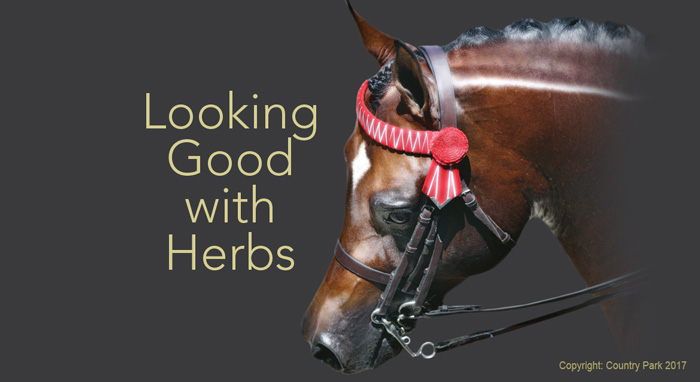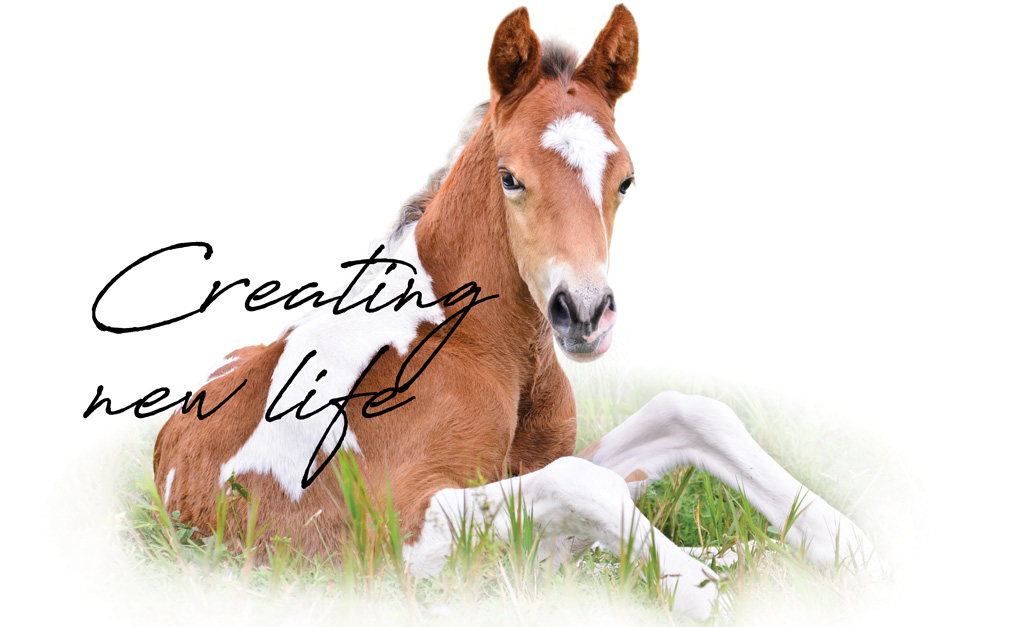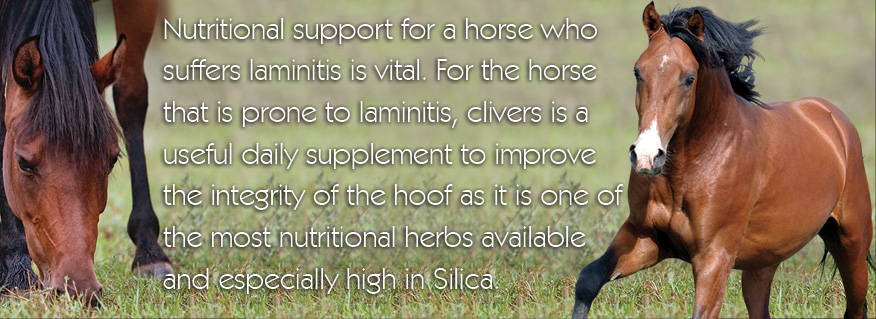With so many areas along the eastern seaboard, north western New South Wales and Queensland experiencing record rainfall, our horses need some special support. If their paddocks have been affected by flood waters or if they are just saturated and muddy certain issues can arise.
Depending on the amount of water and the length of time the water has covered the ground, will depend on what issues your horse may experience. Fortunately, a combination of the same herbs in different proportions can help most issues your horse may experience.
- After the rain herb kit
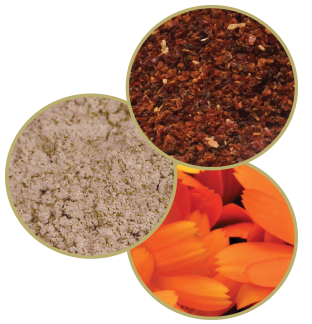
Clivers
Rosehips
Calendula
Nettles
Vervain
Slippery Elm
Garlic or Brewers Yeast
Your ‘after the rain’ kit will not be limited to these herbs however they will provide you with a good foundation to helping your horse.
One of the first annoyances a horse will develop when there is too much water is greasy heel. The primary herb for this condition is clivers closely supported with rosehips. While your horse has greasy heel, you can give clivers and rosehips. If the skin develops scabs or infection then your approach will be adapted to these two herbs and calendula flowers.
For those horses whose skin over their topline suffers rainscald the same three herbs are your friends. However your ratio of feeding will need to be adapted if the skin is broken or damaged and depending on the severity of the scald.
This combination will also assist the horse who has been injured by floating debris. If a wound has become infected then you would look at tweaking the ratio between these three herbs.
If your horse is an itch sufferer and now dealing with rainscald on top of it, add nettles to the herb mix.
For horses whose skin irritations stress them mentally, vervain is one of the more appropriate nervine herbs to support skin problems. While soothing the horses, vervain gently supports the liver and kidneys cleanse the skin.
The nasty aspect of floods is if the hoof has been submerged in water for more than 36 hours. There is the prospect that laminitis will develop. Again clivers and rosehips will be herbs you rely upon, and the most useful herb for the hoof is yarrow. The key to dealing with laminitis is little doses of herbs often to assist with gently flushing the body to assist the hoof to repair.
In early stages of laminitis your emphasis in your ratio will be on the yarrow, clivers and rosehips.
This combination will feed the hoof and with the yarrow, be anti inflammatory while it improves the circulation to the hoof. If your horse is suffering pain that is not managed with the yarrow, the additional herbal approach will vary depending on an assessment of the ‘whole horse’.
If you require the horse have pain relief recommended by your veterinarian, the yarrow, clivers and rosehips will not interfere and can still be given while you are managing your horse’s recovery.
Seedy toe is another hoof problem a horse owner can expect if their horse is vulnerable. With this sort of issue you start with the core hoof herbs clivers and rosehips in an equal ratio. Then add additional herbs if further support is needed. The additional herbs are likely to be at one part proportions, even if the clivers and rosehips are in larger proportions.
After your horse may have consumed contaminated water or been exposed to bacteria that may have been washed over their pasture and then consumed, you can use a simple herbal approach to gently clean the gut and restore its ability to uptake and utilise the contents of the feed.
Slippery elm bark is a gentle demulcent that is reputed to draw unwanted toxins from the lower gut. This supported with calendula to further cleanse and rosehips to restore tone to the gut. In one or two feeds you can add slippery elm, rosehips and calendula flowers.
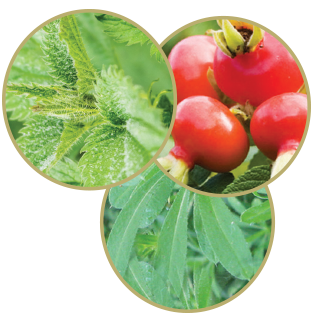 With added moisture everywhere, mosquitoes and other biting bugs tend to be an issue. Traditionally garlic is given to make horse’s blood less tasty to bugs. However, you do have to be careful with your use of garlic. If your horse is being treated with antibiotics or other medications for any infections, please do not
With added moisture everywhere, mosquitoes and other biting bugs tend to be an issue. Traditionally garlic is given to make horse’s blood less tasty to bugs. However, you do have to be careful with your use of garlic. If your horse is being treated with antibiotics or other medications for any infections, please do not
give garlic during this time. The garlic and drugs actions are at odds with each other and set up an antagonistic response in the body, which if it goes on long enough, can have the garlic then create sensitivities.
What you may find later, is your horse may develop skin or gut issues after longer use of the garlic.
So keep the garlic aside through veterinary treatment and then use it when your horse is off medications and well on the path to recovery.
If your horse has a sensitive gut, you can use brewers yeast as an alternative to the garlic as it also changes the taste of your horse’s blood to those biting insects.
Topically, it is difficult to find repellents that keep bugs away more than a few minutes. But if you do have rainscald that attracts flies, you can apply calendula ointment to cover the area with a layer that will assist with the repair of the skin.
If after the water begins to recede and you think your horse is not his usual self, using a combination of the above herbs will help him get back to being healthier and happier again. Keep your approach simple as that will give you flexibility as to how you adapt your approach and room to add another herb if your horse shows other signs of distress.
After a traumatic experience such as the recent floods and continuous rain, give the herbs you choose for two to three months to help bring his wellbeing into a balance.
For correct dosage rates on the herbs mentioned in this article please contact Carol or Ruth at Country Park.
Disclaimer: The information provided in this article is for educational purposes only and is not meant to replace veterinary advice or treatment.
Copyright: Catherine Bird, who is also the author of A Healthy Horse the Natural Way, has been an equine natural therapist for 25 years working closely with Country Park Animal Herbs for over 10 years offering advice to their clients.

